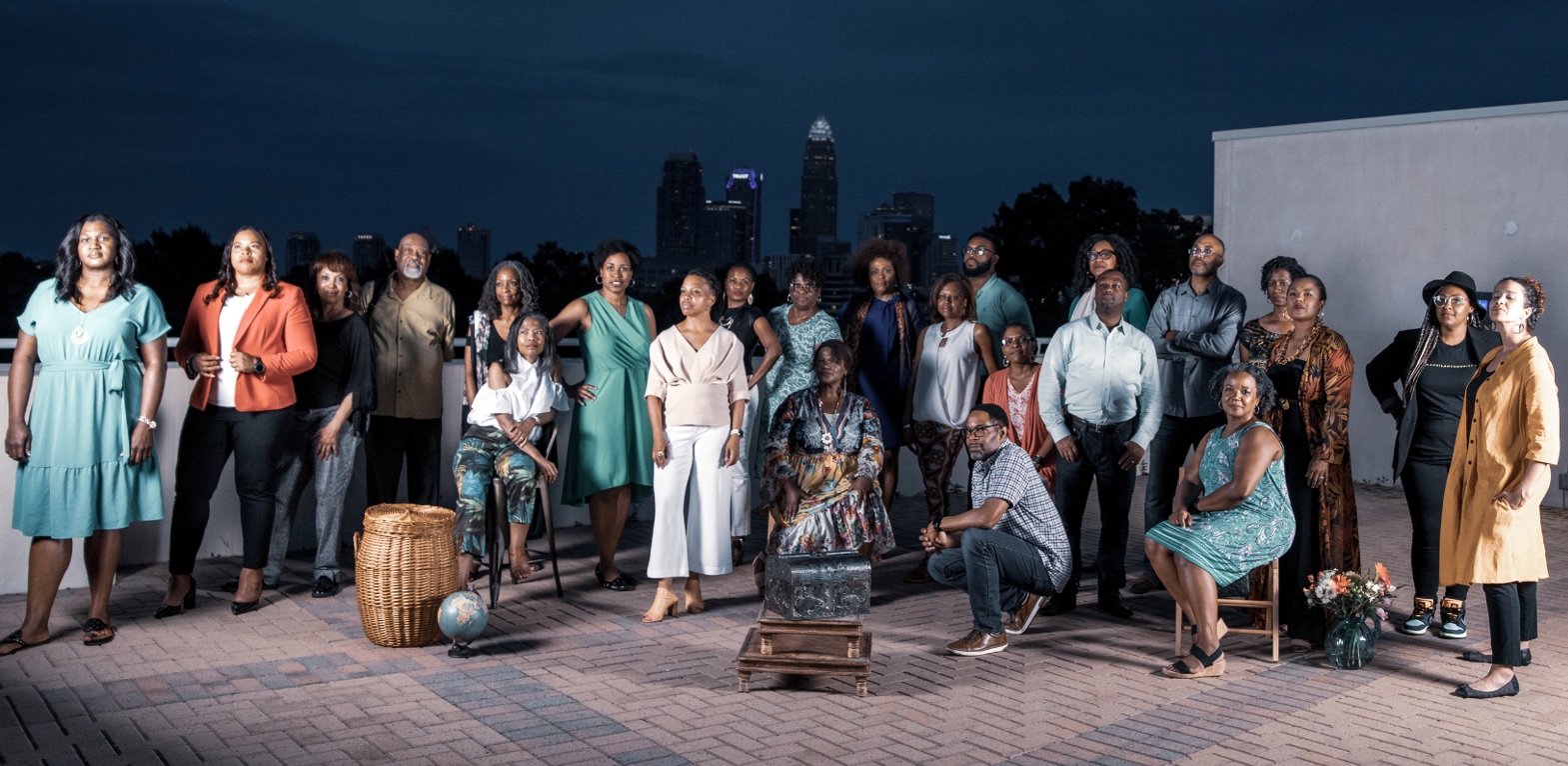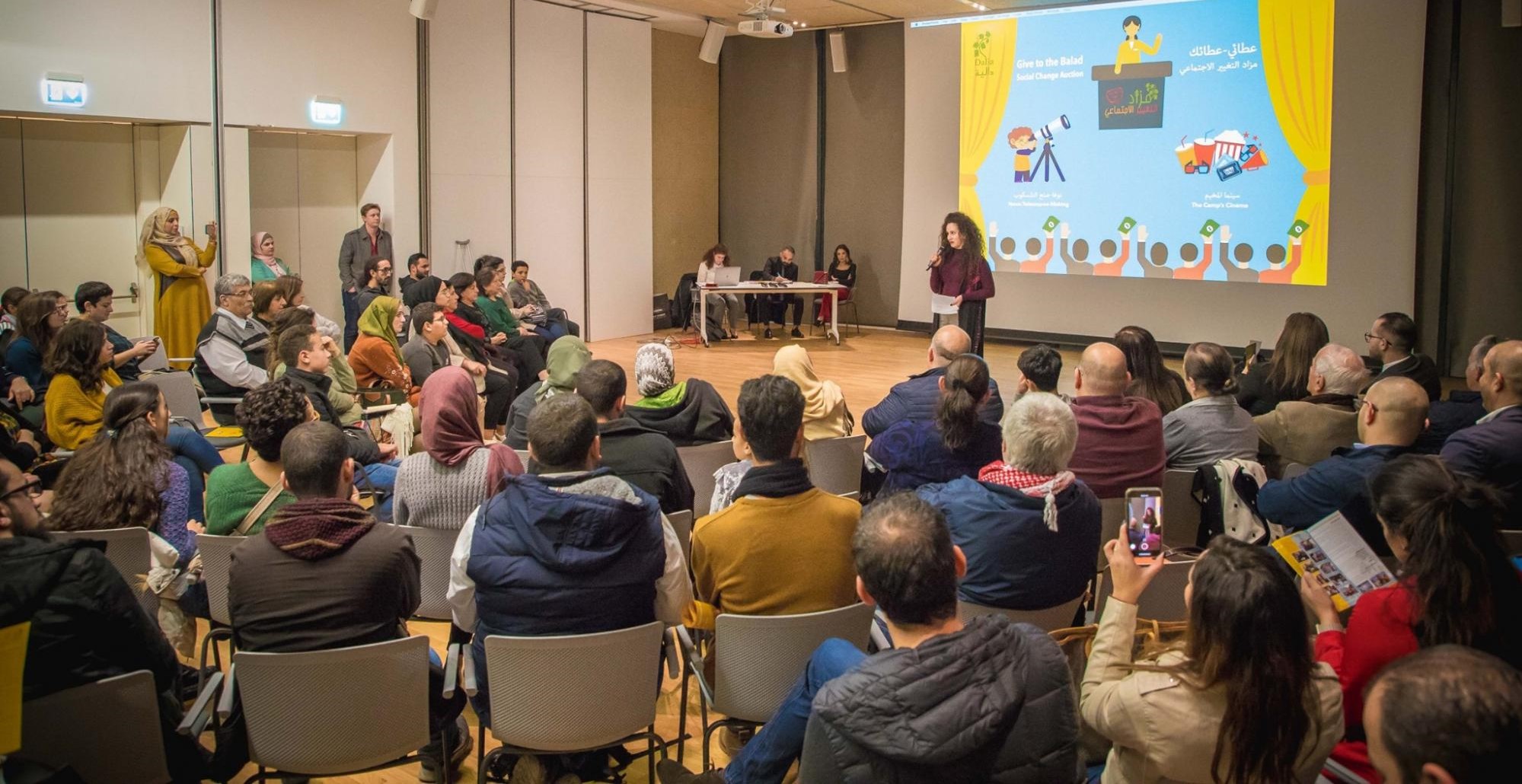My mother the donor
03 Dec 2021
Growing up, I recall how my mother was involved in various community groups – at church she belonged to the mother’s union through which she regularly made financial contributions to support the work of the church. In our neighbourhood, she belonged to a burial society, where she made contributions with a group of friends towards a community funeral fund. She was also involved in the Parent Teacher Association (PTA) where she spearheaded fundraising activities to support education development projects at my school. Beyond the money, she contributed her time and skills too, a real community mobilizer, who brought people together for the common good. In retrospect, I have come to understand now that she was also a donor (although no one ever used that word), doing her part to express her power and voice.
When I first came across the idea of Giving Circles earlier this year, through a study I was conducting for the GFCF, so many of the stories I heard resonated strongly with what I had seen growing up.
As our new report, “Sister, brother – or just someone who cares”: How Giving Circles celebrate the power of giving and reclaim what it means to be a donor, shows, Giving Circles are one form of community philanthropy that is growing in popularity around the world. The new report explores how a simple idea, which involves bringing people together with the sole purpose of giving – and giving together – has been shaped and adapted to fit in different countries and cultures. It draws on a series of conversations with Giving Circle organizers and practitioners from across the GFCF’s global network and beyond, and includes perspectives from Belgium, Brazil, Hungary, Palestine, Russia, Romania, South Africa, the United States and Vietnam.
Despite the diversity of contexts, of communities, of the specific strategies and purposes behind them, the study shows how, regardless of their location, Giving Circles are about building connections, trust and understanding between people.
Giving Circles bring together different members of a community: whether as “givers”, as “doers”, or as both. In that sense, they are about more than money and, in some instances, they also involve a more “political” framing which – either implicitly or explicitly – rejects the power of “big philanthropy.” In the words of one contributor to the paper, “You don’t need to worry about what you call yourself, call yourself a sister, a brother or just somebody who cares. Don’t get sucked into the world of ‘big donor’ and ‘small donor.’”
So-called “ordinary” givers might be led to believe that, because they do not have a lot to contribute, their giving may have little impact. According to Darryl Lester of the Community Investment Network, for example, in the past, African Americans tended to downplay their giving: “They would often say, ‘I don’t have enough, I don’t think what I have can make a difference.’ Their minds were telling them that their giving is not good enough.” Similarly, Beulah Fredericks, Director of the Community Development Foundation Western Cape in South Africa, explained how ordinary people tend to be apologetic when they are giving: “When one is giving, they often say, ‘I am sorry, l only have this little.’” However, based on my recent work to prepare the report, I can confidently say that ordinary givers are playing a critical role in supporting various causes that they care about in their communities, from racial equity to promoting independence of the press.
Other examples in the report highlight the impact of Giving Circles. For example, a group of Romanians living in Brussels, Belgium, created their own Giving Circle – the Brussels Donors Circle – as a way to build diaspora philanthropy and work together as a community, while also staying connected to their home country 2,000km away. In Russia, meanwhile, the Arkhangelsk Centre of Social Technologies Garant uses Giving Circles to build trust between the public and civil society organizations, and to overcome the perception that NGOs are somehow the “enemy.” In the United States, Giving Circles among African American communities have been an important tool with which to reinstate a sense of dignity and ownership among historically marginalized communities. And, in Palestine, the Dalia Association is redefining community beyond fixed borders through their Giving Circle, which they call a “Social Change Auction.”
These and other examples in the report illustrate how Giving Circles respond to community realities without being overly hierarchical in the ways that they support local initiatives. While Giving Circles are certainly focused on getting ordinary people to give and to engage in their communities, institutional donors, particularly those who believe in locally-led development, have a role to play too. Valaida Fullwood, author of Giving Back and a contributor to the report, stated that it is really important for institutional donors to recognize the rise, growth and benefits of Giving Circles: “Some humility is needed all around – particularly with institutional donors recognizing the depth of knowledge that exists within Giving Circles. Institutional donors that want to support Giving Circles can be overbearing, but what is important is for them to create spaces for circles to emerge.”
At the GFCF we believe in the power of community philanthropy because it is based on the premise that ordinary people – like my mother – must have a stake and say in their own development. Giving Circles can be a useful tool in community philanthropy’s toolbox for making this happen, and for putting power back into the hands of communities.
By: Tarisai Jangara, GFCF Communications Specialist
Download the full report “Sister, brother – or just someone who cares”: How Giving Circles celebrate the power of giving and reclaim what it means to be a donor







A comunidade tem o poder de mudar a sua história, baste ter vontade e fé, acredito que existe muitas pessoas que já fazem esse movimento apenas tem receio de aparecer nas câmeras e partilhar o que sabe. Muito bonito esse movimento tem que continuar sempre no nosso bairro, comunidade, em casa etc …
Community giving is an old African culture and has been a way of life for decades. Until very recently, when giving became formalized philanthropy and donor funding started having a negative impact old African culture of giving. Both governments and communities often look out for donor funding to achieve what communities did our time of growing up. It is our cultural expectation not only to give and share our but also to receive in different forms to include; financial, traditional guidance provided to during our different stages of life and development. Every person in the community young and old grow… Read more »
Thank you Wairimu Mungai for your comment and for sharing your insights. This is much appreciated. I would be happy if you can join us for our upcoming launch events on 27 Jan for the report on #GivingCircles! Check out the info (bit.ly/3rgljQE) & register to join us for 1! We’ll be discussing the power & potential of everyday generosity. #ShiftThePower
Very informative article. So many lessons learnt.